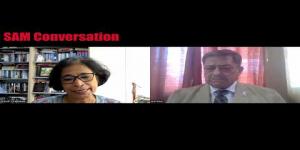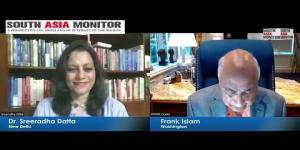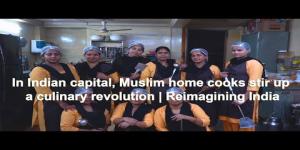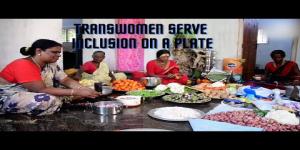Rampant corruption in Bangladesh's health sector: Report warnings went unheeded
More than 16 months ago, the Anti-Corruption Commission (ACC) sent a report to the health ministry identifying the sources of graft in the health sector in Bangladesh, setting off alarm bells

More than 16 months ago, the Anti-Corruption Commission (ACC) sent a report to the health ministry identifying the sources of graft in the health sector in Bangladesh, setting off alarm bells.
One of the findings was that corruption takes place during the purchase of medicines, surgical equipment and other machines due to absence of proper monitoring by the government. An alleged nexus of contractors and officials from different organisations under the ministry buys many "inessential machines and equipment to misappropriate money," said the report.
In the report, submitted in January 2019, the ACC also mentioned 25 recommendations on preventing graft and other corrupt practices in the sector.
All those recommendations, however, appear to have fallen on deaf ears as allegations of corruption in the procurement of N95 masks, PPE units and other safety gear surfaced even during the COVID-19 pandemic, which hit the country around March.
In such a situation, ACC Chairman Iqbal Mahmood yesterday in a written statement said, "Had the health ministry followed the ACC's recommendations made last year, unbridled corruption in the health sector could have been reined in."
He said if steps were taken in line with to their recommendations, corruption at the sector could have been checked to some extent.
"The commission has adopted a zero-tolerance policy against graft in the health sector. Our inquiry will be unbiased and complete," he said in the statement.
In early April when alleged anomalies in the procurement of masks came to the fore, the health directorate faced a barrage of criticism for providing substandard respirators, an essential safety gear to fight the deadly virus, to frontline doctors and other medical staff.
Later, a government probe was launched into an allegation that regular masks were supplied to different hospitals after labeling them as N-95 ones. The probe committee recommended action against the supplier, but no action has so far been taken.
On June 18, the ACC had formed a committee to probe the allegation.
It then issued a letter to the ministry on June 21, seeking detailed information about the projects undertaken to procure masks, PPEs, sanitisers, ICU equipment, ventilators, PCR machine and test kits to combat COVID-19.
The commission sought information from the health ministry, the Directorate General of Health Services (DGHS) and Central Medical Stores Depot (CMSD) about the purchase of N-95 masks and PPEs and told them to submit the information by June 30.
As a part of the inquiry, the anti-graft watchdog also sought information from the ministry about the doctors who have been transferred from their workplace on various grounds since late March.
The move came after several doctors were transferred after they raised questions over the standard of masks, gloves and PPE suits supplied to the hospitals.
On December 12 last year, the ACC hand a letter to the health ministry asking it to blacklist 14 medical equipment suppliers, who were found involved in misappropriation of public money worth about Tk 108 crore in several graft cases.
The organisations are: Rahman Trade International, Anik Traders, Ahmed Enterprize, Manila Medicine, SK Traders, MH Pharma, Ovi Drugs, Albira Pharmacy, SM Traders, Mercantile Trade International, Bengal Scientific and Surgical, Universal Trade Corporation, ASL and Blair Aviation.
Ironically, it took the DGHS over six months to blacklist them.
Only on Wednesday, the directorate issued a circular blacklisting the 14 contractors.
"To ensure proper utilisation of public money, bring transparency in procurement and prevent corruption and fraudulence, the Anti-Corruption Commission sent a letter with a list of cases against the 14 farms and their proprietors and opined that the 14 contractors be blacklisted," reads the circular, signed by DGHS Deputy Director Hasan Mahmud.
"In this circumstance, it is requested to take necessary steps against the proprietors of the contractors," it said.
ACC in its investigation carried out at different times found that a group of dishonest officials and staffers of the directorate of health and its other organisations procured unnecessary MSR, heavy machinery and services several times at prices higher than the market prices.
"There have also been instances of taking money without supplying the goods," according to the ACC's December 12 letter to the health ministry.
In such cases, the contractors create a syndicate that takes part in the tender process, the letter said.
"Because of these syndicates, goods are procured at prices several times higher than usual, which creates scope of misuse as well as misappropriation of public money," it added.
The letter said, "To ensure proper use of public money, to bring transparency in procurement and prevent ongoing corruption, forgery and conspiracy, ACC thinks the listed firms need to be blacklisted."
Asked about the ACC chairman's statement, Bangladesh Health Minister Zahid Maleque, in a text message last night, said, "Our ministry has been very busy handling the coronavirus and dengue situations for quite some time. We tried to follow advices from all important agencies to the best of our ability. Any misappropriation shall not go unchecked."
https://www.thedailystar.net/frontpage/news/health-sector-graft-report-2019-acc-warnings-go-unheeded-1921141
















Post a Comment